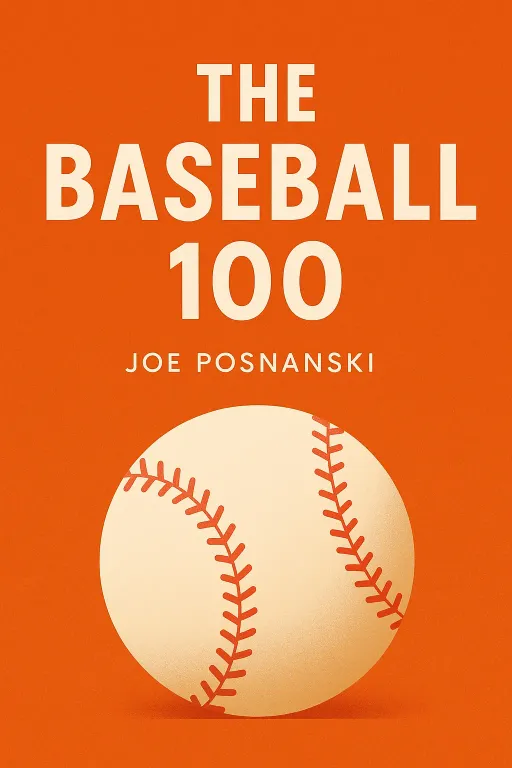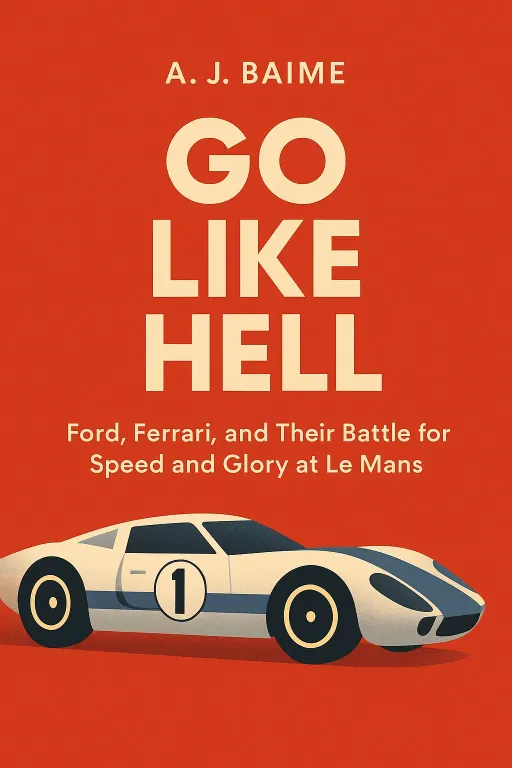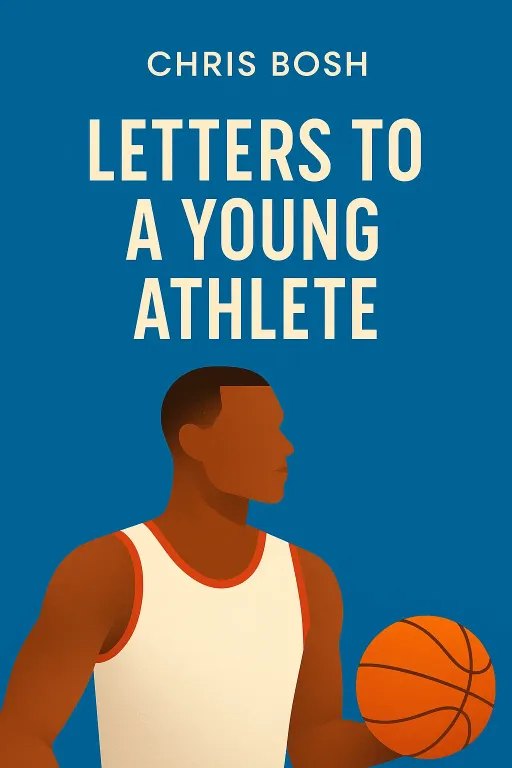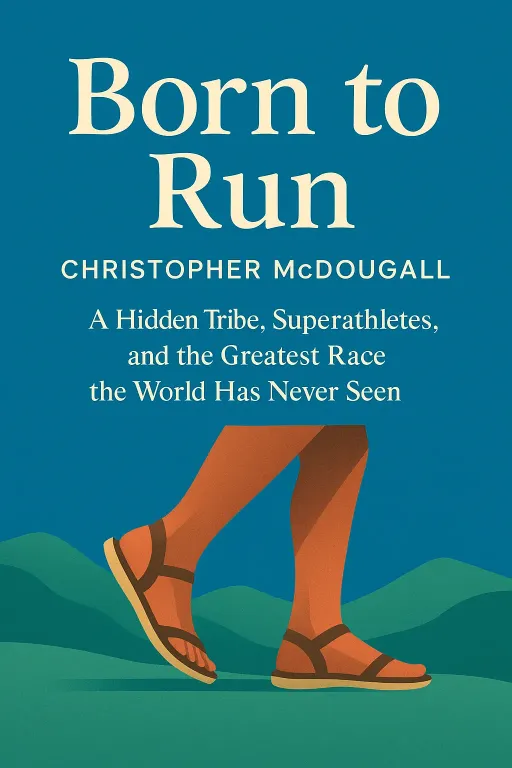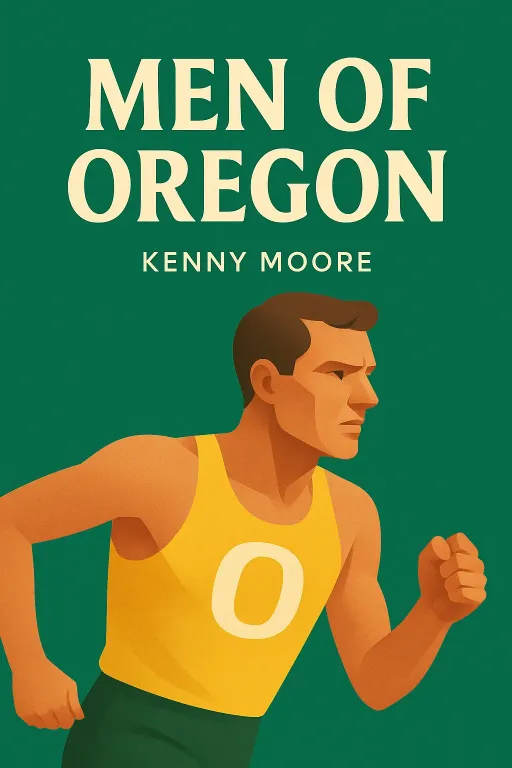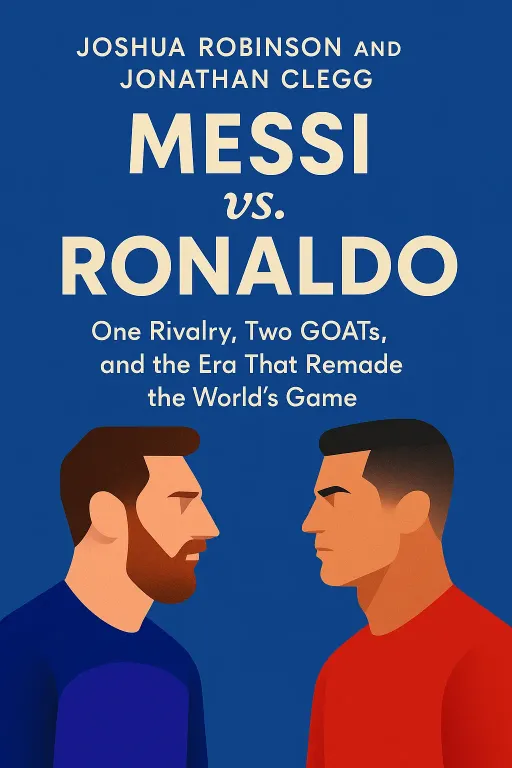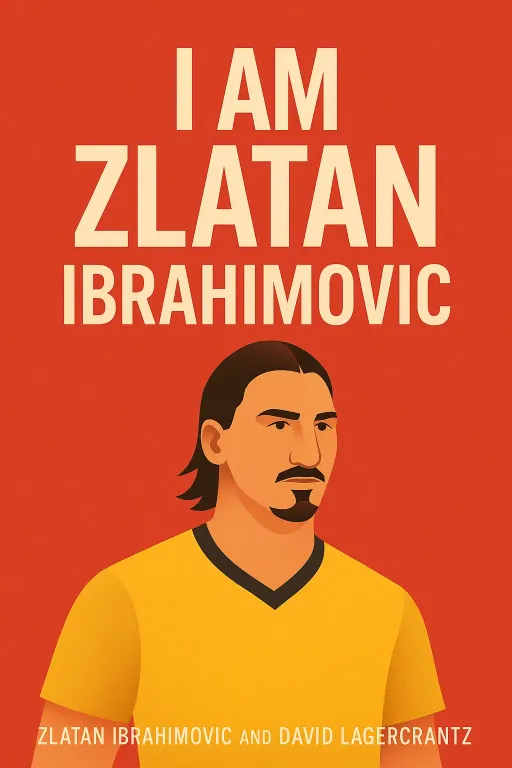
I Am Zlatan Ibrahimovic
10 minIntroduction
Narrator: A metal kit box flies across the locker room, crashing against the wall. A furious voice cuts through the stunned silence of the world’s greatest football team. "You haven’t got any balls! You’re shitting yourself in front of Mourinho. You can go to hell!" The target of this tirade is Pep Guardiola, the celebrated manager of FC Barcelona. The aggressor is his star signing, a player acquired for a staggering 66 million euros just months earlier. This explosive confrontation was not just a momentary loss of temper; it was the inevitable climax of a clash between two opposing philosophies, two clashing worlds, and one of the most defiant personalities in modern sports.
The story of how Zlatan Ibrahimović reached this breaking point, and the life that forged his unyielding character, is laid bare in his autobiography, I Am Zlatan. Co-authored with David Lagercrantz, the book is more than a sports memoir; it's a raw, unfiltered look into the mind of a man who refused to be anything other than himself, revealing how his greatest strengths were born from his deepest struggles.
The Forging of a Fighter in Rosengård
Key Insight 1
Narrator: Zlatan Ibrahimović’s identity was not forged on the pristine pitches of Europe’s elite clubs, but in the concrete courtyards of Rosengård, a tough immigrant suburb in Malmö, Sweden. His childhood was a chaotic mix of poverty, family dysfunction, and a constant feeling of being an outsider. His Bosnian father struggled with the trauma of war and alcoholism, while his Croatian mother was often overwhelmed and prone to anger. The family apartment was frequently a battleground, and the refrigerator was often empty. This environment instilled in Zlatan a fierce independence and a hardened, "us-against-the-world" mentality.
This rebellious streak found an early outlet in petty crime. A defining story from his youth begins with the theft of his prized BMX bike. Heartbroken and feeling a deep sense of injustice, Zlatan didn't just mourn his loss; he sought retribution. He began stealing bikes himself, becoming an expert at picking locks. He explains that it was never just about the bikes; it was about the thrill, the "kicks," and the act of taking back control in a world that felt uncontrollable. This behavior, born from a single injustice, became a core part of his developing personality: a willingness to break rules and a belief that he had to fight for everything he wanted. Soccer became the ultimate channel for this aggression and desire, a place where his outsider status and combative nature could be transformed into a unique and unstoppable talent.
The Clash of Worlds at Barcelona
Key Insight 2
Narrator: In 2009, Zlatan's move to FC Barcelona was supposed to be the crowning achievement of his career. Instead, it became the site of his most profound professional conflict. The clash was not just about tactics, but about identity. From the start, manager Pep Guardiola made it clear that Barcelona was a place of humility. "Here at Barça, we keep our feet on the ground," Guardiola told him, "so we don’t turn up to training sessions in Ferraris or Porsches." Zlatan, who saw his flashy cars as symbols of his hard-won success, felt he was being asked to suppress his personality.
The situation deteriorated when Lionel Messi, the club's undisputed star, asked to be moved from the wing to a central attacking position. Guardiola obliged, shifting the team's formation and sacrificing Zlatan's role. As one of Zlatan's friends aptly put it, it was as if "Barça had bought a Ferrari and was driving it like a Fiat." Zlatan felt marginalized and misused. When he tried to discuss the issue, Guardiola responded with a complete and unnerving silence, refusing to even look at him for months. This cold shoulder treatment eroded Zlatan's confidence and fueled his frustration, culminating in the infamous locker room outburst. The confrontation was the point of no return, confirming that Zlatan’s individualistic fire could not be contained within Guardiola's rigid, conformist system.
Navigating the Cutthroat Business of Football
Key Insight 3
Narrator: Zlatan’s journey through the world of elite football is also a lesson in its brutal business realities. Early in his career at Malmö FF, his naivety was nearly exploited. He trusted the club's director, Hasse Borg, who advised him against agents, calling them "crooks," only for Zlatan's father to discover that Borg had negotiated a contract that denied Zlatan any percentage of his future, multi-million-euro transfer fee. It was a harsh lesson in the necessity of shrewd representation.
This experience led him to Mino Raiola, an unconventional agent who would become a pivotal figure in his career. Their first meeting was a stark contrast to Zlatan's expectations. He arrived at a luxury hotel in a Porsche and a Gucci jacket, trying to project an image of success. Raiola appeared in jeans and a t-shirt, ordered enough sushi for five people, and then bluntly confronted Zlatan with his mediocre statistics. "With stats like these," Raiola challenged, "do you think I can sell you?" He told Zlatan to sell his cars, sell his watches, and start training three times as hard. This tough-love approach was exactly what Zlatan needed. Raiola’s aggressive, often theatrical, negotiation style and his unwavering focus on Zlatan's potential transformed his career, navigating the complex politics of clubs like Juventus during the Calciopoli match-fixing scandal and ultimately securing his record-breaking moves across Europe.
The Unseen Man Behind the Legend
Key Insight 4
Narrator: Behind the arrogant, confrontational public persona, the book reveals a more vulnerable and complex individual, a side most clearly seen through his relationship with his partner, Helena Seger. When they first met, Zlatan was the embodiment of the "flashy Yugo" stereotype she disdained. His immaturity and reckless pranks constantly tested her patience. However, their relationship found a turning point during a Christmas holiday when Zlatan fell severely ill.
Bedridden with a high fever for days, he was completely dependent on Helena's care. She nursed him, showered him, and saw a side of him that was stripped of all bravado and arrogance. This moment of profound vulnerability humanized him in her eyes and forged a much deeper connection between them. The birth of their sons, Maximilian and Vincent, further grounded him, introducing new anxieties and a sense of responsibility that balanced his life on the pitch. These personal stories reveal that the larger-than-life figure of Zlatan is also a man shaped by love, family, and the universal experiences of sickness and fatherhood.
The Unwavering Pursuit of Victory
Key Insight 5
Narrator: If one thing defines Zlatan Ibrahimović, it is his relentless drive to win, often fueled by a desire for revenge against those who doubt him. This was never more apparent than during his time at Inter Milan. In the final, decisive match of the 2007-2008 season, Inter needed a victory against Parma to secure the league title, the Scudetto, after a 17-year drought. The pressure was immense, compounded by the team's history of last-minute failures.
Zlatan was struggling with a painful knee injury and started the match on the bench. As the game wore on and news came in that their rival, Roma, was winning its match, the tension became unbearable. With the team's hopes fading, Zlatan was brought on in the second half. Playing through the pain, he became the focal point of the attack. He scored not once, but twice, delivering two spectacular goals that secured the 2-0 victory and the championship. He later dedicated the win to everyone who had doubted him and the team. This performance encapsulates his career: thriving under pressure, overcoming adversity, and single-handedly bending the outcome to his will.
Conclusion
Narrator: Ultimately, I Am Zlatan is the story of a man who refused to be anything but himself. The book’s most powerful takeaway is that Zlatan’s confrontational genius and unwavering self-belief are not mere personality quirks; they are the very engine of his success, forged in the adversity of his youth and honed against the rigid, often political, systems of elite football. He is a player who needed conflict to thrive and whose greatest moments often came when he had a point to prove.
The book leaves us to ponder a challenging question about the nature of greatness. In a world, and especially a sport, that prizes conformity and the "team player" ethos, what space is there for the defiant individual? Zlatan’s story suggests that perhaps true, transcendent talent cannot always be contained, and that sometimes, the most impactful figures are not the ones who fit in, but the ones who force the world to fit around them.
